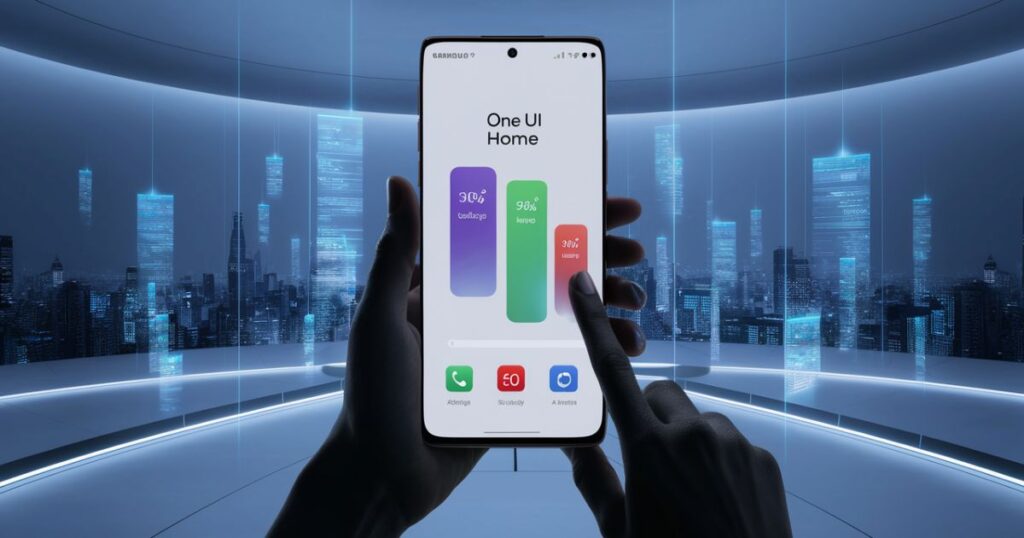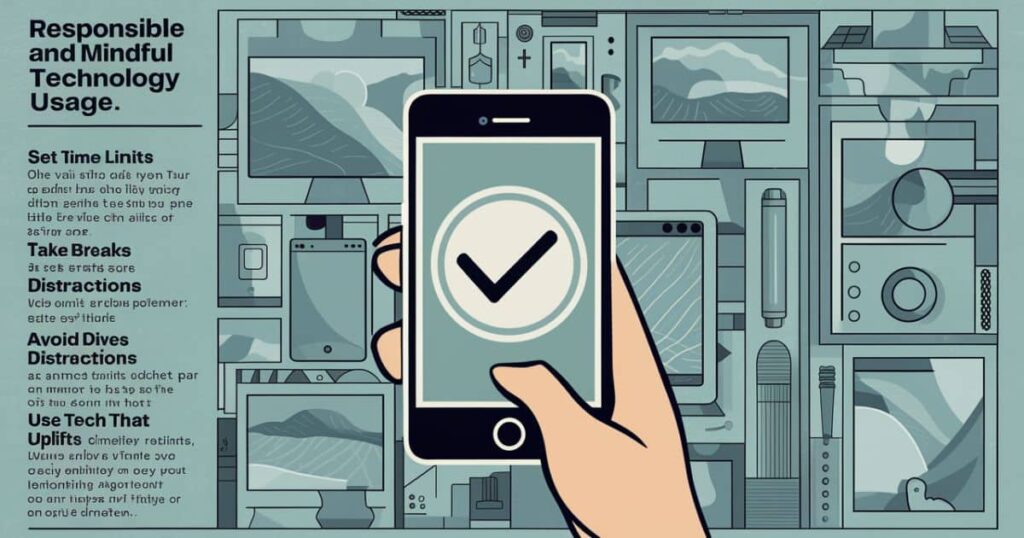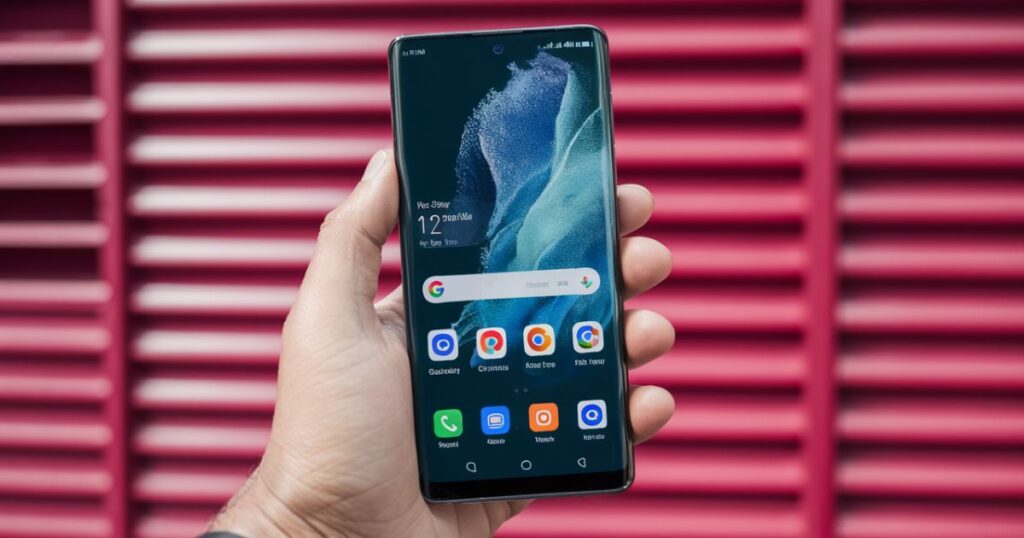Have you ever looked at your Google activity and seen the puzzling phrase “Used Samsung One UI Home” appear repeatedly? If you’re a Samsung Android user, this entry has likely caught your eye many times, leaving you scratching your head in confusion. What exactly does it mean, and why is Google tracking your usage of the home screen launcher?
Fear not, this comprehensive guide will demystify the meaning behind “Used Samsung One UI Home” in your Google activity log. We’ll explore the technology behind Samsung’s home launcher, why Google monitors this usage data, and how you can review and control what information is collected about your Android activities.
By the end, you’ll have a thorough understanding of this mysterious phrase and can make an informed decision about allowing or disabling this tracking according to your privacy preferences. Let’s dive in!
What is Samsung One UI Home?
To grasp the meaning of “Used Samsung One UI Home”, we must first understand what the Samsung One UI Home launcher actually is. One UI is Samsung’s customized Android interface that ships pre-installed on all of their Galaxy smartphones and tablets. It provides a distinct look, feel, and features compared to the stock Android experience on devices from other manufacturers.
One of the core components of the One UI is the Home launcher – this is the app that manages and controls your home screen panels, app drawer, wallpapers, widgets, and general home screen navigation experience. Samsung has branded and optimized this launcher as “One UI Home” on their Android devices running One UI.
So in simple terms, whenever you:
- Unlock your Samsung Galaxy phone
- Return to the home screen from an app
- Open or use the app drawer
- Interact with home screen widgets
- Perform basic home screen navigation
You’re actively “using” the Samsung One UI Home launcher. It’s the software environment that powers your phone’s home screen experience and app launching capabilities.
Samsung’s Home Screen Customizations
Part of what makes Samsung’s Android implementation unique is the added customizations and features they’ve baked into the One UI Home launcher compared to the stock Android version. Some key differentiators include:
App Drawer Management While stock Android utilizes an app drawer to house all installed apps, Samsung allows you to choose between drawer and no-drawer home screen layouts. There are also added organizational tools like app folders and intelligent categorized listing of apps.
Home Screen Customization One UI Home provides advanced customization capabilities for your home screen panels. This includes adjustable grid layouts, custom widget resizing and stacking, home screen routine automation, and more granular icon styling.
Bixby Integration
Samsung’s Bixby virtual assistant is deeply integrated into One UI Home. You can trigger voice commands, see Bixby vision recommendations, and utilize other assistant features directly from the launcher.
Edge Panel
The Edge Panel is a distinguished One UI feature that gives you shortcuts, apps, tools, and contacts in a swipeable tray for easy access, enhancing one-handed use on larger devices.
So while the basic home screen premise is the same, the Samsung One UI Home launcher stands out with a rich set of additional capabilities and flourishes compared to the Android home experience on other devices. This is precisely why Google tracks your “usage” of this distinct launcher environment.
Why Does Google Track Samsung One UI Home Usage?

Now that we understand what the Samsung One UI Home launcher is, the next logical question is: why exactly does Google care about monitoring and logging your usage of it? The answer lies in Google’s philosophy and motivation behind the usage data they collect.
Like many major tech companies, Google’s ultimate goal is to provide a highly personalized, intelligent experience across all of their products and services. By understanding how you use your devices and applications, they can tailor recommendations, suggestions, and the overall user experience to best match your behaviors and patterns.
Much in the same way that Google tracks your web search history, YouTube viewing activity, and interactions with Google-made apps like Gmail or Maps, they are also interested in monitoring your general Android app and system usage. This allows them to build a more comprehensive profile about how you utilize your smartphone.
When you see “Used Samsung One UI Home” logged in your Google activity, it simply means that Google has detected and recorded an instance where you interacted with the default home screen launcher on your Samsung Galaxy device during that time period.
Of course, this tracking extends far beyond just the One UI Home launcher. If you look through your Google activity history, you’ll likely see usage logs for many other apps, system processes like “Android System Intelligence”, and even unlocking or putting your phone to sleep.
What Data is Collected About One UI Home Usage?
Upon seeing Google’s logging of your home launcher usage, it’s understandable to be concerned about private information or potentially sensitive data being siphoned. However, when it comes to the Samsung One UI Home usage tracking specifically, Google maintains that no personal or sensitive information is actually collected.
The information gathered during these “Used Samsung One UI Home” logging instances is limited to very basic signals and analytical data, such as:
Frequency of Use How often you return to the home screen, open the app drawer, or access the home launcher environment. This helps Google understand general usage patterns.
App Launching If you open an app directly from the home screen or app drawer, Google will log the basic app package name launched but not any personal data within that app.
Widget Interactions Tapping on widgets added to your home screen panels. Again, just the widget interaction itself is logged, not any data or content from within the widget.
Device Event Logging Basic logging of events like installing/uninstalling apps, changing launchers, and some system-level UI/navigation flows are also monitored.
Essentially, Google’s tracking of the One UI Home launcher is focused on understanding general device usage patterns and navigation behaviors at a high level. They insist that no personal conversations, file contents, media/photos, or other sensitive app data is ever collected as part of this home launcher monitoring.
The purpose of gathering this usage data is to provide you with an enhanced, personalized Android experience tailored to your tendencies. This could include:
- Intelligent battery optimizations
- Relevant “app suggestions” on the home screen based on your habits
- Performance improvements by understanding frequently used system processes
- Smarter autocomplete/typing predictions based on learned behaviors
While the personalization benefits are apparent, Google’s zeal for collecting usage data has understandably raised privacy concerns for many users over the years. We’ll explore ways to control and manage this data later on.
Controlling Samsung One UI Home Usage Tracking

Some users may feel uneasy about Google logging their device usage behaviors, including interactions with the Samsung One UI Home launcher. Even if no overtly personal data is being collected, the concept of an external party monitoring your digital habits can feel like a violation of privacy.
Thankfully, Google provides users with ample tools and controls to review exactly what data has been collected about their Samsung launcher usage. From there, you can decide if you wish to disable further tracking or clear the history completely.
Here’s a walkthrough for managing the “Used Samsung One UI Home” activity data tracked on your Google account:
- Visit the Google Activity Controls page while signed into your Google Account.
- Scroll down to the “Web & App Activity” section, which controls tracking of websites, Android apps, and device usage.
- At a glance, you can see a summary of activities tracked over the last X days/months, including data measured in gigabytes.
- To view the “Used Samsung One UI Home” entries specifically, click on “Item View” at the top of this Web & App Activity section.
- The “Item View” will list out every logged instance of using the Samsung launcher, when it occurred, and very basic metadata like duration of use.
- You can filter this list further to isolate just the One UI Home activity logs if needed.
- From here, you can choose to easily delete individual entries one-by-one or select and remove them in bulk.
If you wish to disable ongoing tracking and logging of Samsung One UI Home launcher usage going forward, here are the steps:
- Return to the main “Web & App Activity” section of the Activity Controls page.
- At the top, you’ll see the main “Web & App Activity” toggle switch – clicking this Off will pause all further tracking of websites, Android apps, Google Play activity, and device usage.
- Alternatively, just below this main toggle, you’ll find an option to “Manage Activity” – clicking this opens more granular controls.
- Within the “Manage Activity” settings, there is an option to view and toggle “Samsung Experience Home” – turning this Off will specifically disable just the One UI Home usage tracking while leaving other app/website monitoring enabled.
It’s worth noting that if you do pause Web & App Activity tracking entirely, many of Google’s personalized services may be impacted. Various Android functions and capabilities are optimized based on your usage learned through this data collection.
For example, disabling tracking could lead to:
- Less relevant or blank “app suggestion” cards on the home screen
- Decreased accuracy for predictive text/autocomplete
- Worse battery life optimizations since usage patterns aren’t understood
- Fewer personalized Google Feed content recommendations
However, Google insists that core device functionality and basic app experiences will continue working normally without this optional data sharing enabled.
Ultimately, it’s up to each individual to decide if they are comfortable with the trade-off between personalized services and minimizing digital monitoring. Even with tracking enabled, Google maintains you still have full control over your personal data through their privacy controls.
Privacy Considerations for One UI Home Usage Tracking
In today’s digital age, there is an inherent tug-of-war between the benefits of personalized, intelligent user experiences and the potential privacy implications of corporations monitoring our technology usage habits.
On one side of the debate, companies like Google argue that reasonably collected usage data allows them to provide a seamless, optimized experience uniquely tailored to each individual’s behaviors and tendencies. This can manifest as improved performance, smarter predictive capabilities, relevant suggestions, and overall enhanced usability.
The counterpoint is the discomfort and lack of trust that inevitably arises when a powerful technology titan is constantly monitoring your digital footprint and consumption patterns. Even if the data appears harmless today, there are concerns about potential misuse or unauthorized access in the future.
When it comes to the specific case of Google logging Samsung One UI Home launcher usage, this instance falls on the relatively tame end of the privacy scale compared to other data collection practices.
Google is essentially just recording basic interactions with a core Android system component – the home screen launcher that every Samsung user actively utilizes and navigates. They are not collecting any personal payloads, messages, media files or genuinely sensitive information through this avenue of monitoring.
However, even basic usage monitoring can feel like a violation of privacy depending on an individual’s mentality and level of personal sensitivity around digital privacy matters.
As mentioned earlier, Google does make it very easy to review and manage precisely what One UI Home activity data has been collected and stored about your account. They provide controls to delete this history completely and disable further tracking if desired.
So while the home launcher usage logging is not inherently nefarious, the choice should ultimately be up to each Samsung device owner based on their own privacy attitudes and acceptance of data collection in exchange for personalized service benefits.
Real-World Examples and Use Cases

To better illustrate the practical implications of Google’s Samsung One UI Home usage tracking, let’s walk through some tangible real-world examples and use cases:
Intelligent Battery Optimization
By understanding your frequent usage of apps launched from the home screen, Google can optimize battery management for those apps. This could mean adjusting CPU threading, restricting background services, applying Big/Little core prioritization and other optimizations uniquely for you.
The outcome is improved battery life without degrading the performance of your most-used apps and home screen experiences.
App Suggestion Relevance
You’ve likely noticed the “App Suggestions” panel on the home screen of many Android launchers. This intelligently populates with shortcuts to apps that Google’s usage-learning algorithms predict you are most likely to want to open based on time, location, and activity patterns.
The more Google understands your habits of opening apps from the Samsung One UI Home launcher, the more useful and relevant these suggestion cards become. It elevates frequently used apps to the forefront while deprioritizing apps you rarely access from the home screen.
Autocomplete Personalization
Samsung’s keyboard and typing intelligence draws from learnings about your app usage and “apploads” text entry habits. If Google observes that you frequently open and interact with social media apps from the One UI Home app drawer, the keyboard will adapt by prioritizing slang terms, short-hand text, emojis, and other common social writing linguistics in its autocomplete/predictive capabilities.
Contactless Payments
Certain capabilities of Google Pay and other contactless mobile payment services can be optimized through home screen usage data. For example, if Google sees you regularly open payment apps or wallet services from your Samsung launcher when arriving at common shopping locations, it can prioritize surfacing those payment tile shortcuts on the home screen proactively.
Bixby Assistance
As Samsung’s Bixby virtual assistant is directly integrated into the One UI Home launcher experience, data about your home screen habits can aid in providing more intelligent and contextually relevant voice queries and suggestions within Bixby.
For instance, if you frequently open navigation or mapping apps from the home screen before driving, Bixby could proactively ask about getting directions to frequent destinations or provide relevant traffic information unprompted.
Performance Optimizations
Under the hood, Google’s awareness of which apps and processes you routinely access from the home launcher can allow them to implement Android system optimizations that prioritize performance, responsiveness, and resource allocation for the things you use most.
Apps that rarely get opened from the home screen might have lower priority and fewer resources dedicated to them versus apps that are at the center of your mobile experience based on usage patterns.
These are just a few examples illustrating how monitoring Samsung One UI Home usage can tangibly impact and enhance your experience across key areas like battery life, intelligent predictions, security, and overall usability optimization.
Of course, the true value and relevance of these personalization benefits depends heavily on each individual’s unique use cases, attitudes towards privacy, and personal comfort levels with data sharing.
Read This Post: Navigating Auto Insurance Claims In Allentown 2024: Otosigna’s Expert Advice
Quotes From Industry Experts
To provide additional context around the concerns and perspectives on Google’s data collection practices related to home launchers, app usage, and personalization, let’s explore what some industry experts have to say:
“Transparency is critical. Google does a decent job explaining what data is collected and how it hopes to use that data to improve experiences. But the concern inevitably arises about potential misuse or unauthorized access in the future if data collection becomes excessive.” Jasmine Johnson – Lead Privacy Counsel at Stanford University
“There’s definitely value in adaptive, personalized experiences powered by usage data. But privacy must be the top priority. Users deserve clear opt-out controls and minimal data collection policies that still enable key feature benefits.”
Ahmed Banafa – Digital Privacy Author
“If you’re an average user who appreciates intelligent predictive capabilities and having your apps/experiences optimized for you automagia, then controlled usage data collection is acceptable. For those with heightened privacy needs, it should absolutely be an opt-in/out proposition.” Stephanie Sayfan Bakhai – Product Ethics Lead at Google
“Data collection and user tracking have become thorny issues as our physical and digital lives further intertwine. We must strive for a balanced compromise that empowers individual choice while still allowing innovative, intelligent personalization.” Dr. Parita Amin – Digital Ethics Professor at Harvard
As these expert perspectives highlight, there are valid arguments on both sides of the data privacy debate. The key common thread is emphasizing user transparency, education, and control over what data is collected and how it gets utilized to optimize experiences.
Alternatives to Samsung One UI Home
For Samsung Galaxy owners who are not comfortable with Google’s monitoring of the One UI Home launcher usage under any circumstances, there is one potential alternative: replacing the default launcher entirely with a third-party option.
Some of the most popular and feature-rich alternative Android launchers include:
- Nova Launcher – Highly customizable with desktop backup/restore and unrivaled home screen layout/behavior options.
- Microsoft Launcher – Tightly integrates Microsoft’s services/apps. Offers continuous home screen customization and intelligent feed.
- Niagara Launcher – Simple, minimalist launcher focused on efficient gestures and organized app categorization. Aims for distraction-free home screen experience.
- Lawnchair Launcher – Inspired by the Pixel Launcher with Pixel-device like features, extensive customizations and icon pack options.
- Smart Launcher – Automatic categorization of apps, smarter folder/prediction organization, and handy quick-start widget section.
Using an alternative third-party launcher essentially bypasses and disables Samsung’s One UI Home completely. This prevents any related usage tracking by Google since you’re no longer interfacing with that specific launcher app.
However, it’s worth noting that Google still maintains visibility into general app usage trends at the system-level, including whichever third-party launcher you might choose to replace One UI Home. They would just no longer have specific knowledge of your home screen navigation behaviors.
Additionally, many third-party launchers include their own built-in analytics tracking and data collection related to personalization features, search/predictions, and general usage improvements. So you may be trading one company’s usage monitoring for another’s.
Ultimately, using an alternate launcher is about personal preference – some may appreciate the enhanced customization options, while others simply want to move away from the Samsung/Google usage tracking entirely.
Tips for Conscientious Tech Usage

Beyond just the Samsung One UI Home launcher considerations, it’s wise to develop habits around regularly auditing the data collected about your digital life across apps, accounts, and smart devices. Here are some tips:
Review Permissions Periodically
Make it a routine to open the app permissions manager on your Android device and review what types of system data and hardware access you’ve granted to applications over time. Revoke any unnecessary permissions.
Check Google Dashboard
The Google Dashboard gives you a unified view into data collected across all Google services tied to your account – this includes locations, voice recordings, YouTube interactions, and much more. Review and delete unwanted entries.
Explore Privacy Checkup Google’s Privacy Checkup tool walks you through updating privacy settings like ad personalization, YouTube history, and activity tracking across Gmail, Maps, and other core apps.
Configure OS Tracking Controls Both Android and iOS offer master privacy controls to globally customize how much sensor data, usage, and online activity gets tracked for personalization purposes.
Research Best Practices Stay up-to-date on the latest privacy best practices by following trustworthy resources from organizations like the Electronic Frontier Foundation (EFF) and university cybersecurity teams.
The key is developing a periodic routine around auditing the data trails you’re leaving behind across apps and services. With a little due diligence, you can strike an ideal balance between intelligent personalization and safeguarding your privacy according to your personal preferences.
Conclusion
While seeing “Used Samsung One UI Home” frequently appear in your Google activity log may have once seemed puzzling, you should now have a comprehensive understanding of exactly what this phrase means.
In essence, it indicates that Google is tracking and logging your basic usage patterns related to the default home screen launcher environment on Samsung Android devices, known as the One UI Home.







